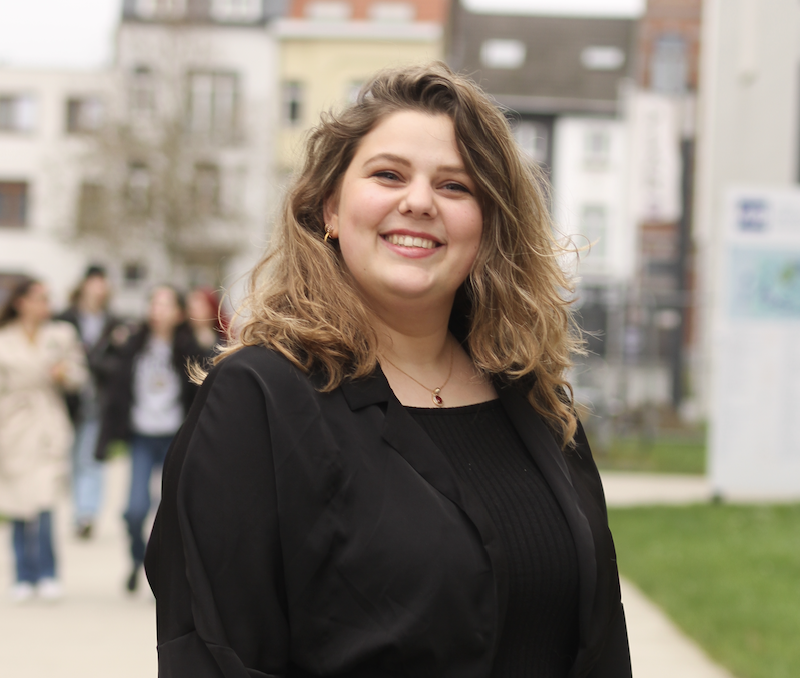
The Digital Youth Work Research Network is hosted by the University of Leeds within the INCLUDE+ Network. DYWR.HUB aims to explore the intersections of equity, inclusion, digital technologies and youth work.
Aims
Our network seeks to foster an environment of knowledge and practice co-creation between researchers, youth workers, young people, policymakers, tech organisations, and other relevant stakeholders.
Our work is grounded in this area’s existing research and practice guidelines. Dr Alicja Pawluczuk, who leads the work of the network, has been and continues to be proactively involved in the work of national and international research and policy networks (e.g., the Europan Academy of Youth Work, SALTO Youth, Digital Youth Work Network, Youth Link Scotland, and Youth Partnership – European Union and Council of Europe).

What is digital youth work?
At DYWR.HUB, we see digital youth work as a practice that brings digital technologies into youth-centred initiatives in ways that support digital literacy and citizenship. We recognise that the term was first used in Finland in 2012, and that since then, there’s been a growing effort to understand how digitalisation fits into youth work.
We build on the 2018 definition from the Council of Europe, which sees digital youth work as the intentional use of digital tools in youth work—not as something separate, but something that can be embedded across non-formal settings like youth clubs, detached work, and information services. We take this further by recognising that digital youth work happens across online and offline spaces and that it sits within the same ethics and principles as traditional youth work (European Commission, 2018).
We also see digital youth work as something shaped by broader systems—social, political, and technological—that affect both young people and youth workers. Patterns of digital exclusion don’t stop with young people; we see them in youth work organisations too (Pawluczuk, 2022).
Youth workers who have access to digital tools and expert support are more likely to try new approaches and influence the direction of the field. Meanwhile, those with little or no access often feel left behind and unable to keep up with changes in tech. This makes it harder for them to respond to the evolving needs of young people. That’s why we think of digital youth work as something that needs to include everyone involved—from young people to practitioners—and why we see addressing structural inequalities as part of the work itself.
If you’d like to join the conversation and connect with others interested in digital youth work, be sure to join our LinkedIn group.
DYWR.HUB People
If you’d like to join the conversation and connect with others interested in digital youth work, be sure to join our LinkedIn group.

Dr Alicja Pawluczuk [Research Fellow at the INCLUDE+ and Founder of the Digital Youth Work Research Hub] has over a decade of experience in co-designing, facilitating, and evaluating digital inclusion, digital literacy and ICT-enabled and/or focused education programmes in the UK and internationally. Alicja has experience working both on high-level digital development programmes (e.g. United Nations University, ITU, EQUALS-EU, Council of Europe, USAID) as well as smaller-scale community-led projects (e.g. digital literacy workshops, digital rights). She has a track record of peer-reviewed publications and cross-disciplinary public engagement activities. Her research has informed a number of international policy-making efforts and recommendations in the context of digital inclusion.The key areas of her expertise include digital inclusion, gender digital divide, digital youth work, and digital and data literacy.

Lotte Vermeire is a PhD researcher in communication sciences at imec‐SMIT, Vrije Universiteit Brussel in Belgium. She is part of the Digital Inclusion and Citizen Engagement and Media, Marketing, and User Experience units. Her research looks into digital and data literacy, digital youth work, and digital inclusion. Her PhD project focusses ondigitally inclusive initiatives aimed at improving data literacy in both formal and non‐formal educational settings.

Cristina Bacalso is the Research Lead for the Equitable by Default? Youth Work, Digital Equity, and Policy in the UK at the DYWR.HUB. Shea is an independent research consultant specialising in public policies for adolescent and youth development, and the human rights of young people. She has worked at international, European, and national levels, with organisations including UNICEF, UNICEF Innocenti, UNDP, European Commission, Council of Europe, European Youth Forum, and with various national governments and youth civil society organisations. Her focus areas are evidence-informed youth policies, youth participation, participatory research, and youth work.
Contact
Dr Alicja Pawluczuk
a.pawluczuk@leeds.ac.uk
.
